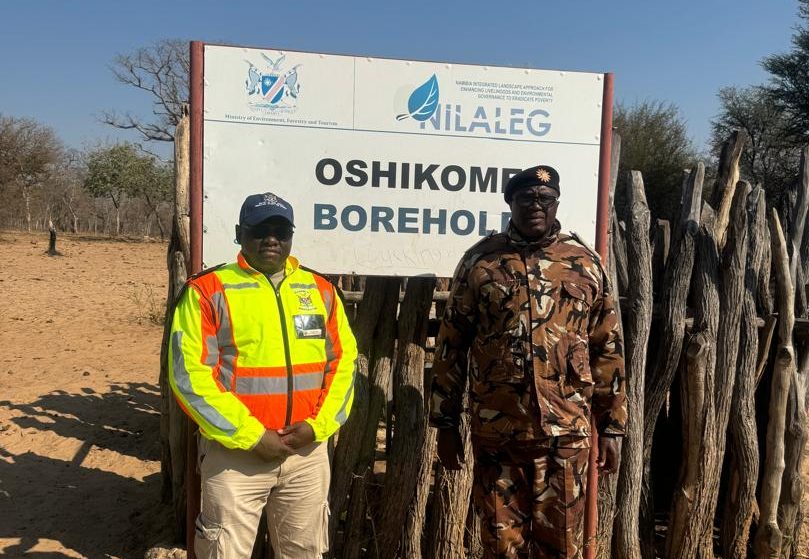A Trip to Namibia: We Are Amazed
Written by on May 16, 2024
There are many stereotypes about Africa.
Most people assume every country in Africa is poor, dangerous and has a terrible economy.
Most investors think Africa is uninvestable.
We disagree.
Certainly, the 54 countries in Africa are not all the same, and while some countries have more issues than others, similar to the United States and Europe, others can make the average Western country jealous, not only thanks to their beautiful nature, pleasant weather and kind people, but also due to stable political systems, enviable demographic growth and promising economic expansion prospects.
One such eye-opening example is Namibia, which we visited with a research trip for the first time since 2015.
In theory, we – seasoned investment nomads who have made nearly 200 research trips and met with more than 2 000 companies from over 30 emerging markets in the past decade – shouldn’t be surprised by any place anymore, let alone by a sparsely populated country of close to three million people living in south-western Africa, where the desert meets the sea.
And yet, we were amazed by Namibia.
Landing in Windhoek, Namibia’s capital city, was as tranquil as it gets: it was a nice sunny morning with pristine blue skies painted with a fine brush on top of green bushes and dry riverbeds.
It’s a divine pleasure to start a research trip like this, indeed.
We quickly made it through the friendly immigration at the functional international airport and embarked on a half-hour ride to the city on a perfectly smooth highway.
Navigating the safe, clean, groomed, modern streets of Windhoek, we couldn’t help but ask, “are we in Germany after all?” – the street signs were in German, a lot of the architecture was German, the tallest church was Lutheran, many cars were German, and some of the residents looked like they were roaming the streets of Munich instead of the savannah.
The prevalence of German culture in Namibia’s capital city is explained by the fact that it was one of Germany’s only colonies in Africa, with the first German settlers having arrived in the late 19th century.
The colonial architecture, German language, Lutheran church and German preference for Ordnung (order) seem to have stuck around on the ground and remain prominent well into the 21st century.
Today, Namibia is one of the safest, most economically advanced and politically stable countries in Africa.
It boasts well-functioning social institutions with a top-three ‘least corrupt’ rank in continental Africa, improving highway infrastructure, growing tourism industry and young demographics.
Seventy percent of Namibians are younger than 30 years of age.
The country’s population has more than doubled in the last 30 years – having expanded by over 40% in the last decade alone when Windhoek experienced 50% population growth and the coastal towns Walvis Bay and Swakopmund both grew by over 60% – and the split between urban and rural population in Namibia is still at a nascent 50/50.
All of this creates tremendous opportunities for local businesses addressing imminent urbanisation, middle class expansion and resulting consumption growth.
Namibia is also becoming more and more popular as a relocation and retirement destination for foreigners, particularly South Africans escaping their decaying institutions, as well as Europeans – primarily German speakers – escaping their depressing winters.
Riding the global work-from-anywhere trend, Namibia has also recently introduced a digital nomad visa, seeking to attract talented creatives willing to explore the country for up to six months and spend money locally – thus benefiting the Namibian economy – while working online and not having to worry about taxes. A win-win for everyone.
GAME CHANGER
Recent discoveries of very substantial oil reserves off Namibia’s coast appear to be a complete long-term game changer for the country.
This oil discovery can further solidify Namibia’s economy, improve its credit rating, help its businesses grow earnings and might lead to a de-peg of the Namibia dollar from South Africa’s currency.
From our analysis, stock markets of countries with newly found large oil reserves did particularly well following the initial five to 10 years post-discovery.
It is likely that Namibia will follow suit, especially given that its stocks are currently trading at very cheap valuations and an unexpected hugely favourable catalyst, such as this oil discovery, can quickly move the market.
The chief executive of the local stock exchange explained to us that while there had been a slowdown in the economy since 2016, business activities are now picking up – and the recent oil discoveries are only going to make it hotter, as it will lead to an improvement in the country’s creditworthiness, which will drive an increase in investment, which will then allow for growth in the entire economy.
In the stock exchange chief executive’s view, given the current mismatch between the economy with upcoming rapid growth, thanks to oil discovery on the one hand and the solid profitable companies whose valuations are ‘through the floor’ on the other, investors that come to the market today might reap the biggest rewards of the future synchronisation between the intensifying business growth and valuations that will have to catch up.
The sector that stands to benefit the most in the early stages of closing this gap is the banking sector – which is already world-class – because it will facilitate growth and investment throughout the entire economy.
Banks that are already doing well will do even better, concluded the head of the exchange.
HIDDEN GEMS
Navigating to our meeting with the management of a multimillion-dollar IT and telecom group, we stopped at a warehouse building on the outskirts of Windhoek.
What awaited us inside this unassuming warehouse was shocking.
It was as if we entered a fantastic parallel universe dreamt up by some genius mind.
The company’s office resembled a spaceship moving swiftly into the future, with a control room to the likes of which we only see in movies about aliens or spies where they monitor the entire world via dozens of high-tech screens.
Having completed more than 2 000 company meetings in the last five years, we are confident this company’s office ranks in our top-five list of best corporate quarters.
The firm has been rapidly growing revenue and already provides services in 35 African countries.
On its home turf in Namibia, it intends to compete with the cellular network monopoly by launching a new mobile operator using 5G capabilities – a welcome development for the quality of service in the local telecom market.
This meeting only cemented our optimism about Namibia.
That a private high-tech telecom company managed to get off the ground, attract top talent and expand to three dozen countries, and aspires to compete with a monopoly, is a testament to the quality of the Namibian people making it happen and to the strength of Namibian institutions providing an environment for such high-value-add entrepreneurship to happen.
We went to Namibia to search for hidden gems.
What we did not expect, and what we realised during our trip, is that Namibia itself is a hidden gem – one of a kind.
Namibia has all the potential to be known as a land of growth and prosperity.
We believe it’s only a matter of time before this market gets re-discovered by investors.
It has growing businesses run by top teams, world-class governance and it has a major catalyst that can drive long-term performance across all sectors of the economy.
– Read the full article on terranovaca.com
https://www.terranovaca.com/a-trip-to-namibia
The post A Trip to Namibia: We Are Amazed appeared first on The Namibian.


